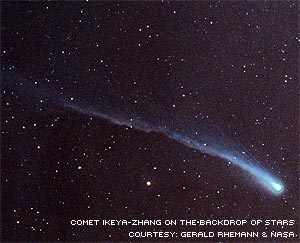Solar Micro Car Kit DIY STEM Kit
$7.99$4.95
 At first, it was suggested that light rays from distant stars is absorbed on its way to us by intergalactic matter. However, astronomers soon realised that this was no solution: any matter drifting out in space that was coming between us and all this starlight would simply heat up so much that it would begin to emit light itself.
Olbers' paradox rests on a number of assumptions: that the universe is of infinite size; that it is infinitely old; and that it is not expanding. Each of these assumptions may actually turn out to be false in the universe we live in and therefore provide a solution to the puzzle.
It is presently believed, for example, that the universe hasn't existed in the form we know it for ever, but rather that it is approximately 14 billion years old. This gives us a loophole to escape the paradox, because even if the universe is infinite and there are infinite stars out there, we would only see those whose light has had enough time to reach us since the beginning of time.
There is also much evidence to suggest that the universe is expanding, causing beams of light which travel through spacetime to be stretched to longer wavelengths. By the time they reach the Earth, many photons have wavelengths that are out of the range of visible light or are even too large to be detected. Calculations using the present estimates for the age and expansion of the universe suggest that this is less important in reducing the brightness of the night sky than the age-factor.
Finally, it may also turn out that the universe does not contain an infinite amount of matter. If it is finite in size, and there are only a finite number of stars in the sky, then it is plausible that there just aren't enough stars out there to fill up the night sky.
At first, it was suggested that light rays from distant stars is absorbed on its way to us by intergalactic matter. However, astronomers soon realised that this was no solution: any matter drifting out in space that was coming between us and all this starlight would simply heat up so much that it would begin to emit light itself.
Olbers' paradox rests on a number of assumptions: that the universe is of infinite size; that it is infinitely old; and that it is not expanding. Each of these assumptions may actually turn out to be false in the universe we live in and therefore provide a solution to the puzzle.
It is presently believed, for example, that the universe hasn't existed in the form we know it for ever, but rather that it is approximately 14 billion years old. This gives us a loophole to escape the paradox, because even if the universe is infinite and there are infinite stars out there, we would only see those whose light has had enough time to reach us since the beginning of time.
There is also much evidence to suggest that the universe is expanding, causing beams of light which travel through spacetime to be stretched to longer wavelengths. By the time they reach the Earth, many photons have wavelengths that are out of the range of visible light or are even too large to be detected. Calculations using the present estimates for the age and expansion of the universe suggest that this is less important in reducing the brightness of the night sky than the age-factor.
Finally, it may also turn out that the universe does not contain an infinite amount of matter. If it is finite in size, and there are only a finite number of stars in the sky, then it is plausible that there just aren't enough stars out there to fill up the night sky.
 'Natural science does not simply describe and explain nature, it is part of the interplay between nature and ourselves.'
'Natural science does not simply describe and explain nature, it is part of the interplay between nature and ourselves.'